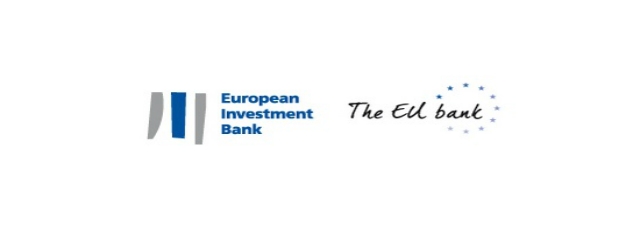News
2015 EIB Prize for excellence in economic and social research
European Investment Bank Institute

2015 EIB Prize (Source: European Investment Bank Institute)
USPA NEWS -
2015 EIB Prize for excellence in economic and social research awarded to Sir Anthony Atkinson and Benjamin Moll. The Luxembourg-based European Investment Bank Institute honours two scholars for their research on the topic of this year´s prize: the Economics of Inequality and Economic Growth.
Sir Anthony Atkinson and Benjamin Moll are the winners of the 2015 EIB Prize for excellence in economic and social research, the EIB Institute announces today. Sir Anthony Atkinson is from the Institute of New Economic Thinking at the Oxford Martin School and Nuffield College, Oxford; and the London School of Economics and Political Science and Benjamin Moll is from the Department of Economics, Princeton University.
EIB President Werner Hoyer will present the prize on 11 November 2015 at the EIB in Luxembourg and both laureates will deliver a prize lecture at the award ceremony. Professor Atkinson will receive the EUR 40 000 Outstanding Contribution Award and Professor Moll will receive the EUR 25 000 Young Economist Award (under the age of 40) in recognition of the academic excellence, work published and impact on public policy of their research on the topic of this year´s prize: the “Economics of Inequality and Economic Growth“.
Created in 2013 by the EIB Institute, the EIB Prize recognises and encourages excellence in economic and social research and promotes its implementation and diffusion.
The Jury, presided by Nobel Prize winner 2010 Sir Christopher Pissarides (LSE) was composed of Richard Portes (London Business School), Branko Milanovic (City University of New York and Luxembourg Income Study), Frank Vandenbroucke, (KU Leuven) and Klaus Zimmerman (winner of EIB Outstanding Contribution Award in 2013, Institute for the Study of Labour (IZA) and University of Bonn).
The Jury, presided by Nobel Prize winner 2010 Sir Christopher Pissarides (LSE) was composed of Richard Portes (London Business School), Branko Milanovic (City University of New York and Luxembourg Income Study), Frank Vandenbroucke, (KU Leuven) and Klaus Zimmerman (winner of EIB Outstanding Contribution Award in 2013, Institute for the Study of Labour (IZA) and University of Bonn).
The President of the Jury said “Tony Atkinson has been at the centre of developments in the economics of inequality and growth for more than forty years. His insights have been extremely influential both in economic theory and policy-making throughout the world. I am both delighted and honoured to be associated with this award to Tony. Ben Moll´s work on cross-country income differences, financial underdevelopment and misallocation of resources is modern and looks at multiple market interactions. It is already gaining influence that others expect to have (if ever) at a much later stage in their career. The profession should expect to see a lot more about the big questions of our times coming out of his research“.
Sir Anthony Atkinson said “I am greatly honoured to receive this prize and pleased by the recognition of the importance of the topic of inequality in today´s world.“
Tony Atkinson established the modern British field of inequality and poverty studies. He has worked on inequality and poverty for over four decades. Tony Atkinson's work is predominantly focused on income distributions and the economics of public policy. There is an inequality measure named after him: the Atkinson index. In his recent book Inequality: what can be done, he argues that high levels of inequality are not inevitable and that policies can be designed to make our societies both more equitable and more efficient.
Tony Atkinson established the modern British field of inequality and poverty studies. He has worked on inequality and poverty for over four decades. Tony Atkinson's work is predominantly focused on income distributions and the economics of public policy. There is an inequality measure named after him: the Atkinson index. In his recent book Inequality: what can be done, he argues that high levels of inequality are not inevitable and that policies can be designed to make our societies both more equitable and more efficient.
Benjamin Moll said “I am very grateful and humbled to be receiving this prize, and especially honoured to receive it next to Tony Atkinson whose work I greatly admire.“
Ben Moll´s work is predominantly focused on macroeconomics and development economics. Much of his work is concerned with understanding the determinants of cross-country income differences, in particular arguing that financial underdevelopment is an important determinant of poverty and examining the effects of policies in the presence of such financial underdevelopment. His current work analyses the causes and consequences of inequality within developed countries.
Ben Moll´s work is predominantly focused on macroeconomics and development economics. Much of his work is concerned with understanding the determinants of cross-country income differences, in particular arguing that financial underdevelopment is an important determinant of poverty and examining the effects of policies in the presence of such financial underdevelopment. His current work analyses the causes and consequences of inequality within developed countries.
more information: https://www.europa.eu
Liability for this article lies with the author, who also holds the copyright. Editorial content from USPA may be quoted on other websites as long as the quote comprises no more than 5% of the entire text, is marked as such and the source is named (via hyperlink).





